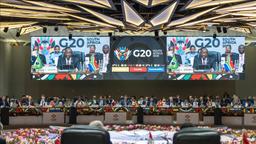
Nilgün Arısan Eralp
Director of EU Studies CenterRelated Publication Files

Policy Note / Nilgün Arısan Eralp, Senem Aydın Düzgit, Atila Eralp, E. Fuat Keyman, Çiğdem Nas
The tension in Turkey-EU relations subsided towards the end of 2020 with the Turkish government’s positive messages of engagement with the EU and its signals towards moderation on the Eastern Mediterranean agenda. This led the last summit of the EU leaders on 9-10 December 2020 to decide for an extension of the specific sanctions list which was adopted a year before, rather than adopt for more comprehensive sanctions towards Turkey. In the same summit, the High Representative Joseph Borrell and the Commission were given the task to prepare a report on instruments and options regarding how to proceed after an analysis of different aspects of the current relations. This report which will be submitted at the upcoming March summit is expected to propose a new framework for the relations while keeping the accession perspective frozen. The Council conclusions also noted that the approach towards Turkey would be coordinated with the incoming Biden presidency and a full-fledged discussion on the issue was postponed to the March European Council. This provided some time to the Turkish government to ease the tensions in the Eastern Mediterranean as well as make headway in the political reform process and create a positive environment for reforms in rights and freedoms, rule of law, and independence of the judiciary especially with regard to high profile cases such as those of Demirtaş and Kavala.
You may read policy note from here.
This policy note has been prepared by TEPAV, IPM, and IKV.




